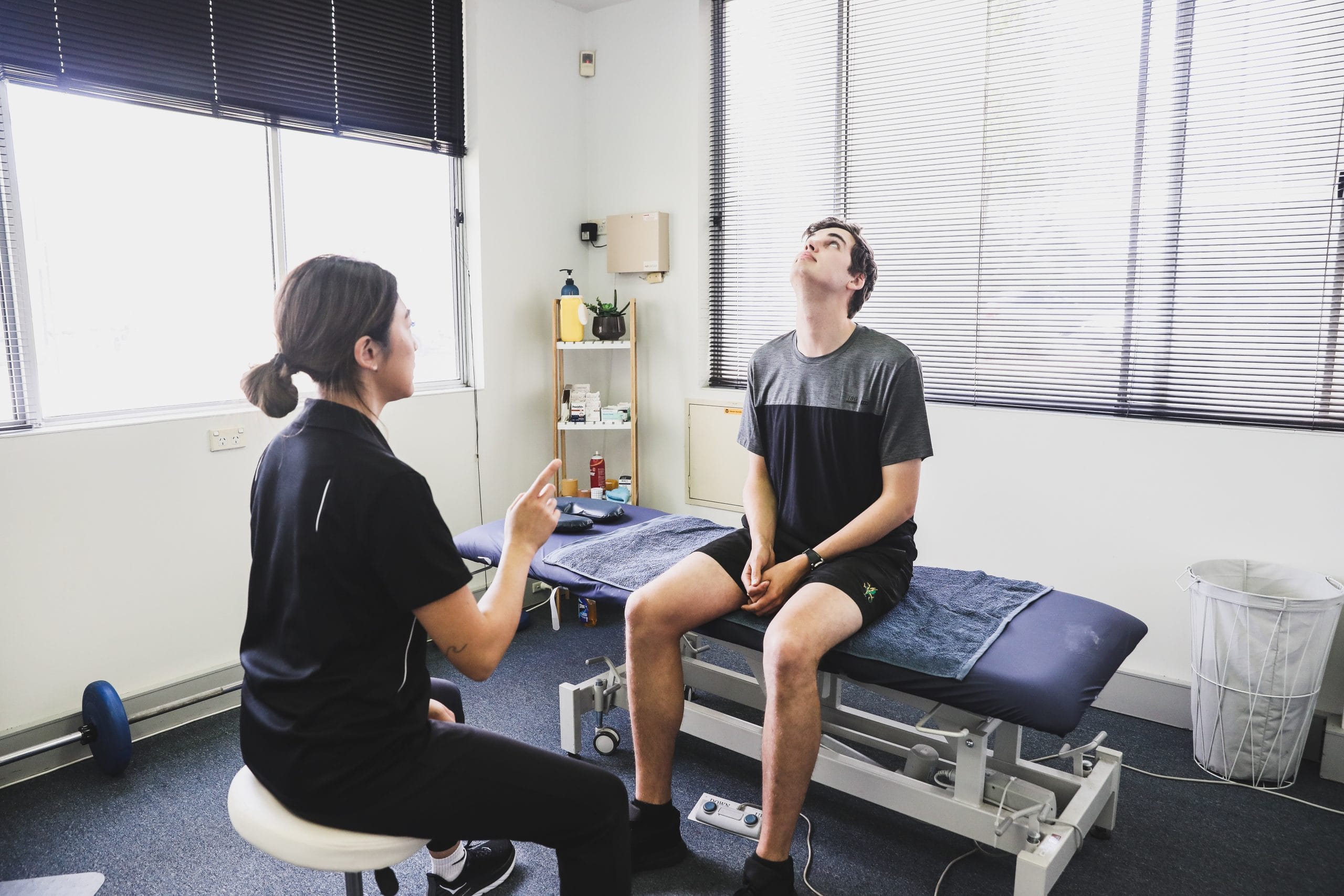
Dizziness is used to describe a range of sensations, including lightheadedness, and feeling faint, woozy or unsteady. Dizziness is a common symptom of various medical concerns but is rarely a sign of a life-threatening condition. However, frequent dizzy spells can seriously impact the life of a sufferer – and there are ways to treat the root cause of your dizziness, which can offer relief from this uncomfortable sensation.
Dizziness can be dangerous if it makes you so unsteady that you fall, or if it’s accompanied by other symptoms such as numbness in the limbs, a sudden and severe headache, chest pain, irregular heartbeat, slurred speech or ongoing vomiting. In the event that your dizziness is sudden, severe, unexplained and accompanied by any of the above symptoms, seek immediate medical attention.
Many systems within the bodywork together in order to keep you balanced. If there’s a disturbance to one of these systems, it can cause you to feel dizzy. The good news is, it’s likely treatable. Dizziness is one of the most common reasons adults visit their doctor, asking the big question: “why do I feel dizzy?” Different things may cause dizziness in people, but here are some of the most common possible causes of dizziness.
Vertigo

Vertigo creates the sensation that your surroundings are spinning or moving. Vertigo usually gets worse when you move your head or change positions, and is stronger than feeling a little off balance. Inner ear problems cause vertigo, as your brain receives signals from your inner ear that aren’t consistent with the signals from your eyes and sensory nerves. There are several main causes of vertigo including:
Benign Paroxysmal Positional Vertigo (BPPV)
Benign Paroxysmal Positional Vertigo is the most common cause of vertigo and can be experienced as an intense and brief sensation that you’re moving or spinning, usually as a result of rapid change in head movement such as turning over in bed or sitting up quickly. BPPV is caused by tiny bits of calcium in your inner ear coming loose and moving around. This causes your inner ear to send the wrong signals to the brain.
Cervical Dizziness
Also called cervicogenic dizziness, cervical vertigo is experienced as a feeling of disorientation or unsteadiness caused by an injury to the neck, or another health condition affecting the neck. People suffering from cervical dizziness may also experience neck pain and stiffness, and a headache. They may not feel neck symptoms at all, they may just feel dizzy.
Vestibular Neuritis
Also known as vestibulopathy or vestibular hypofunction, this inner ear condition is caused by irritation to the vestibular nerve. It can occur without warning, or it sometimes follows a recent viral illness. Your medical practitioner can provide medication to calm the sensitivity of the condition for the first couple of weeks.
For BPPV, cervical dizziness and vestibular neuritis following the use of medication, a physiotherapist can provide support and exercises to help treat the condition. Physio for vertigo will help manage the underlying condition, therefore reducing or eliminating your vertigo and dizziness symptoms.
Meniere’s Disease
Meniere’s Disease is caused by an excessive buildup of fluid in the inner ear. People suffering from Meniere’s Disease experience intense periods of vertigo, often lasting hours. Other symptoms include ringing in the ears, fluctuating hearing loss and nausea. There is no cure for Meniere’s Disease, but treatment can offer some relief. A doctor may prescribe medication, or suggest treatment through changes to your diet.
Circulation Problems
If you’re experiencing circulation problems, your heart may not be pumping enough blood to your brain. This can lead to you feeling dizzy, faint and off-balance. Such circulation issues include a sudden drop in blood pressure, poor circulation or low blood pressure. It may be more common for older people upon standing too quickly.
Conditions such as heart attack, heart arrhythmia or cardiomyopathy, which cause disruptions to blood flow and blood pressure, may also cause dizziness.
Use Of Medications

Dizziness can be a side effect of certain medications. It’s worth speaking to your medical professional if you’re concerned your medication is making you dizzy. Medications are known to sometimes cause dizziness to include:
- Blood pressure medication
- Antidepressants
- Antibiotics
- Sedatives
- Anti-seizure medications
Dehydration
When a person is severely dehydrated, it can cause low blood pressure, leading to dizziness. You should drink enough fluids to replace the fluids you lose through sweating, breathing and urinating. Dehydration leading to dizziness is more common in older people and people with diabetes.
Low Blood Sugar
People with diabetes may experience dizziness, lightheadedness, sweating, shakiness and confusion if they have low blood sugar. A quick fix is to eat or drink something containing sugar, such as juice or lollies. Diabetics need to check their blood sugar levels regularly to ensure they don’t drop too low.
Other Potential Causes
Other common causes of dizziness include:
- Low iron levels (anaemia)
- Overheating
- Anxiety disorders
- Stress
- Migraine
- Infection, such as labyrinthitis
How To Stop Dizziness

Treating the condition that is causing the sensation of dizziness will usually make the symptom go away. Determining the cause of your dizziness is the first step to eliminating it from your life.
If you experience dizziness for a prolonged period of time and it doesn’t start to improve, seek medical care – especially if accompanied by chest pain, blurred vision, or a severe headache.
If you suffer from vertigo, a physiotherapist can assist with appropriate treatment to manage your condition. Physio for vertigo includes manual therapy and exercises for the head and neck, balance exercises and other effective treatment options depending on your situation. You don’t need to put up with regular dizzy spells – get in touch with the friendly team here at Integrity Physio in Como, Perth, and see how we can help you treat your dizziness.




